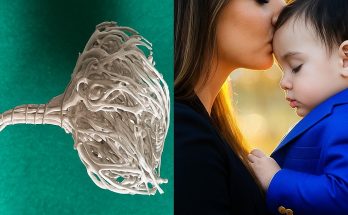Burning sensation during urination is a common symptom that may indicate a urinary tract infection (UTI) or other underlying health issues. Understanding the causes, symptoms, and treatment options for burning urine can help alleviate discomfort and address any underlying infections. In this article, we’ll explore the causes, symptoms, and treatment options for burning urine associated with UTIs.
1. Causes of Burning Urine
1.1. Urinary Tract Infections (UTIs)
- UTIs occur when bacteria enter the urinary tract and multiply, leading to inflammation and infection.
- Common bacteria responsible for UTIs include Escherichia coli (E. coli), which is found in the digestive tract.
1.2. Other Infections
- In addition to UTIs, other infections such as sexually transmitted infections (STIs) or fungal infections can cause burning sensations during urination.
1.3. Irritation or Inflammation
- Irritation or inflammation of the urinary tract due to factors such as chemical irritants, certain medications, or kidney stones can also result in burning urine.
2. Symptoms of Burning Urine
2.1. Burning Sensation
- The most common symptom of burning urine is a sensation of pain, discomfort, or burning during urination.
2.2. Frequent Urination
- Individuals with burning urine may experience an increased frequency of urination, along with a persistent urge to urinate.
2.3. Blood in Urine
- In some cases, burning urine may be accompanied by blood in the urine (hematuria), which can indicate a more severe underlying condition.
3. Treatment Options for Burning Urine
3.1. Antibiotics
- UTIs caused by bacterial infections are typically treated with antibiotics prescribed by a healthcare professional.
- It’s essential to complete the full course of antibiotics as prescribed to ensure the infection is fully eradicated.
3.2. Pain Relief Medications
- Over-the-counter pain relief medications such as ibuprofen or acetaminophen can help alleviate discomfort associated with burning urine.
3.3. Hydration
- Drinking plenty of water and staying hydrated can help flush out bacteria and reduce the concentration of urine, relieving symptoms of burning.
3.4. Avoiding Irritants
- Avoiding potential irritants such as spicy foods, caffeine, alcohol, and acidic beverages can help reduce irritation and inflammation of the urinary tract.
3.5. Cranberry Juice
- Some studies suggest that drinking cranberry juice or taking cranberry supplements may help prevent UTIs by preventing bacteria from adhering to the bladder wall.
4. Prevention Tips
4.1. Maintain Good Hygiene
- Practice good hygiene habits, including regular washing of the genital area and wiping from front to back after using the toilet.
4.2. Stay Hydrated
- Drink plenty of water throughout the day to maintain proper hydration and promote urinary tract health.
4.3. Urinate After Intercourse
- Urinating after sexual intercourse can help flush out bacteria and reduce the risk of UTIs.
5. When to Seek Medical Attention
- If symptoms of burning urine persist or worsen despite home remedies, it’s essential to seek medical attention from a healthcare professional.
- Severe symptoms such as fever, chills, back pain, or blood in the urine may indicate a more serious infection or underlying condition that requires prompt medical evaluation.
Conclusion
Burning urine can be a distressing symptom that may indicate a urinary tract infection or other underlying health issues. Understanding the causes, symptoms, and treatment options for burning urine can help individuals alleviate discomfort and address any underlying infections. By following prevention tips and seeking prompt medical attention when necessary, individuals can maintain optimal urinary tract health and overall well-being.






